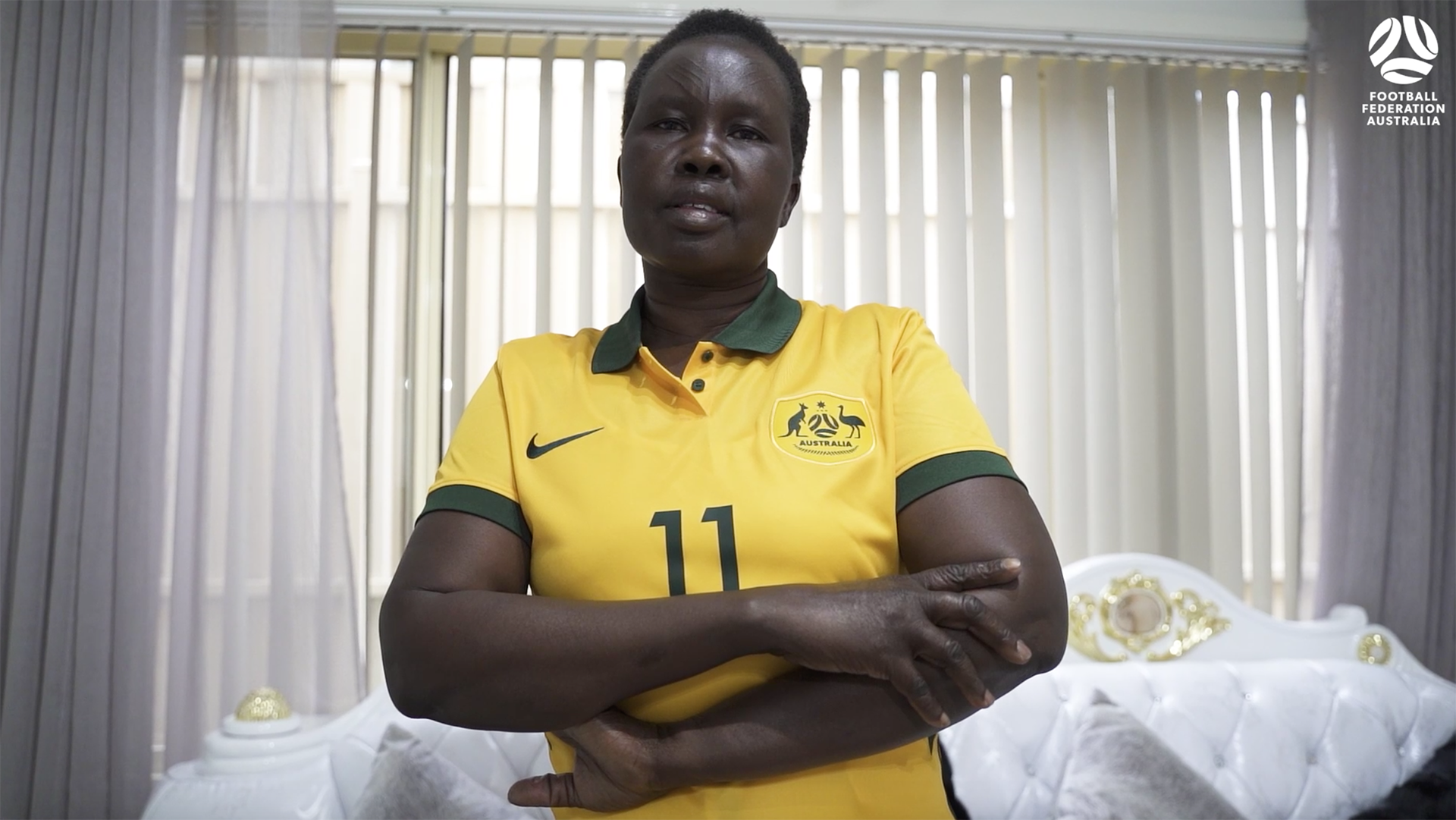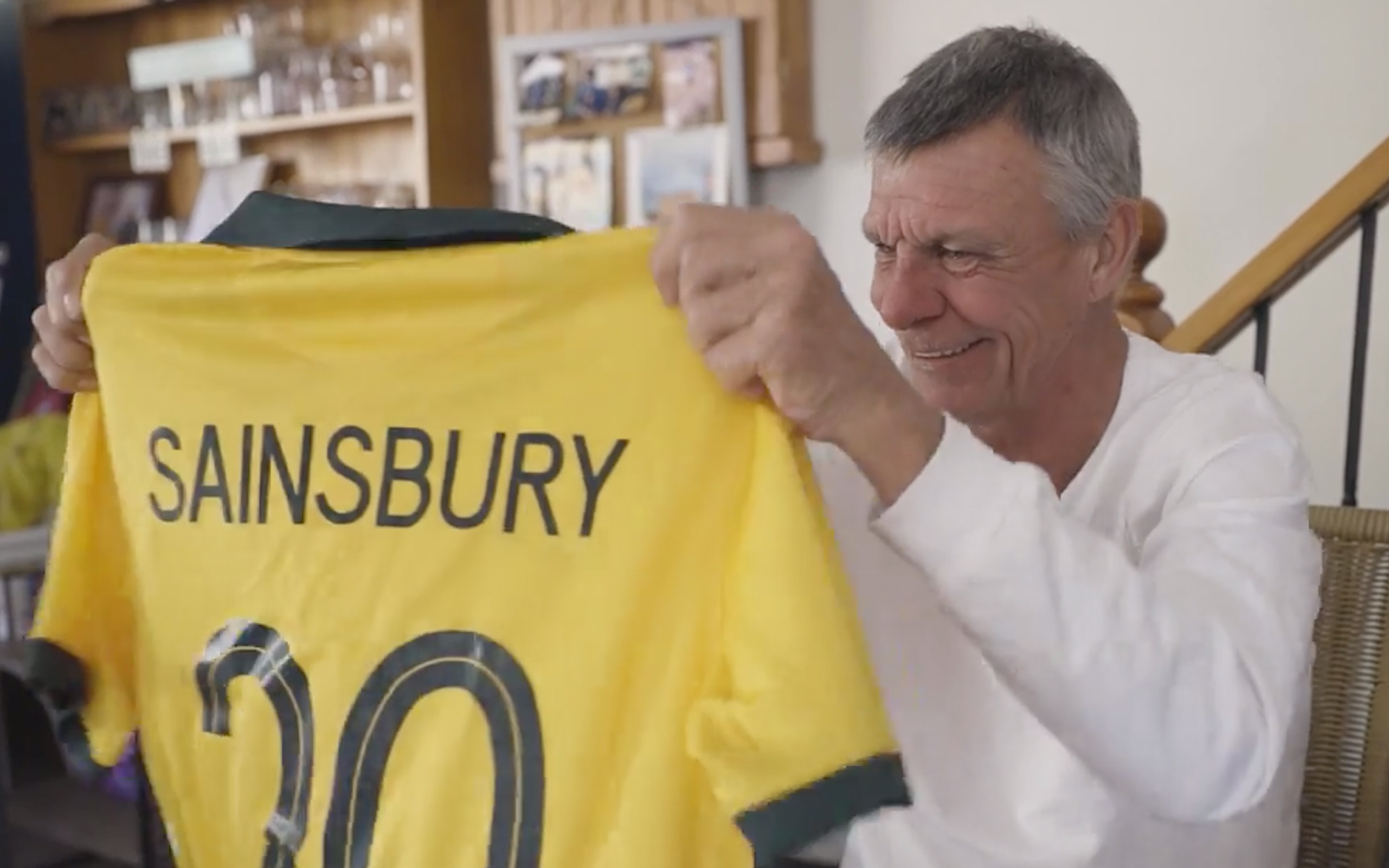Harmony Day 2021: How the Socceroos show us 'everyone belongs'
With cultural roots across the globe, the Socceroos serve as a powerful reminder that everyone belongs.
The national team is distinctly intertwined with the message of 2021 Harmony Day and Harmony Week celebrations.
It is often said that football is a universal language, a game that discounts culture and ethnicity to bring the masses together. In their proud history dating back to 1922, the Australian men's national team prove exactly that - having seen players born in over 40 different countries represent our nation.
SPOILER ALERT! Before scrolling further, take the quiz to see how many of the 40 birth nations of Australian national teams players you can name!
The divergent backgrounds of Australia’s national team stars represent not only the green and gold, but also their vast and varied communities throughout the world.
Current Socceroos born overseas include Martin Boyle and Harry Souttar, who were both born in Scotland, while Milos Degenek was born in the Croatian town of Knin and James Jeggo hails from Vienna. Awer Mabil is of South Sudanese descent but was born in Kenya prior to coming to Australia as a refugee.

And, of course, even those Socceroos that were born in Australia also come from rich and diverse roots.
Sydney-born Mustafa Amini boasts both Afghan (father) and Nicaraguan (mother) heritage, while Brisbane-boy Kenneth Dougall is a blend of Scottish and Thai ancestry.
There are those that come from the ‘big smoke’ like Adam Taggart (Perth), Jamie Maclaren and Jackson Irvine (Melbourne), Craig Goodwin and Brandon Borello (Adelaide) and Aaron Mooy and Danny Vukovic (Sydney).
While Adam Federici (Nowra), Rhyan Grant (Canowindra), Mitchell Langerak (Emerald) and Andrew Redmayne (Gosford) forged their path to the national team from the regions.
SOCCEROOS - BIRTH COUNTRIES all players (since 1922)
- Argentina
- Australia
- Austria
- Bosnia and Herzegovina
- Brazil
- China
- Costa Rica
- Croatia
- Czech Republic
- England
- Germany
- Greece
- Hong Kong
- Hungary
- Iran
- Ireland
- Italy
- Kenya
- Lebanon
- Lithuania
- Macedonia
- Malta
- Mauritius
- Montenegro
- Myanmar
- Netherlands
- New Zealand
- Nigeria
- Northern Ireland
- Poland
- Samoa
- Scotland
- Serbia
- Slovakia
- South Africa
- Spain
- Switzerland
- Turkey
- Ukraine
- United States
- Wales

In October 2020, Football Australia launched a five-part digital series focused on celebrating the rich migrant and multicultural fabric of Australia’s national teams and Australian football at large.
The series, titled ‘Generations of Australians’, featured current and prominent Socceroos and Westfield Matildas players recognising people in their lives who, through their respective moves to Australia, helped pave the way for the players to be in a position to represent Australia.
The video and editorial series told the stories of Socceroos defender Trent Sainsbury, Westfield Matildas vice-captain Steph Catley, skipper Sam Kerr, midfielder Chloe Logarzo, Socceroos forward Awer Mabil and the first coach to take Australia to a FIFA World Cup, Rale Rasic.

Football Australia Chief Executive Officer, James Johnson, explained how the series emphasised the focus in the XI Principles for the future of Australian football (XI Principles) to recognise and celebrate Australian football’s proud multicultural origins.
“Australian football is a melting pot of two million participants represented by over 200 different cultures,” Johnson said. “We are the most diverse and globally connected sport within the Australian sporting landscape, and we are extremely proud of who we are. In the XI Principles we acknowledge our multicultural and diverse origins as central to the identity of the sport today and its ongoing narrative.”

“In Principle I of the XI Principles we outline our intent to embrace the game’s multicultural origins and diverse history by bringing this into the mainstream, while in Principle II we commit our focus to creating a narrative for the Australian game which is contemporary and genuine.
“This series highlights people from a variety of backgrounds who through their journeys to Australia helped pave the way for their family members to proudly represent Australia. Australia’s national football teams reflect the diversity of Australian society, and this series explores just some of the backgrounds and journeys that help to make the Matildas and Socceroos both distinguishable and relatable to Australians.”
To watch, take a look at the Football Australia, Socceroos and/or Westfield Matildas social channels which have re-broadcast Generations of Australia episodes throughout Harmony Week.
Alternatively, catch the full series in the player at the top of this page.
